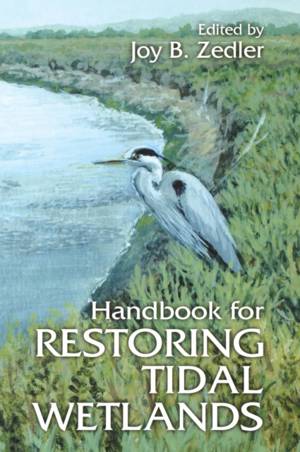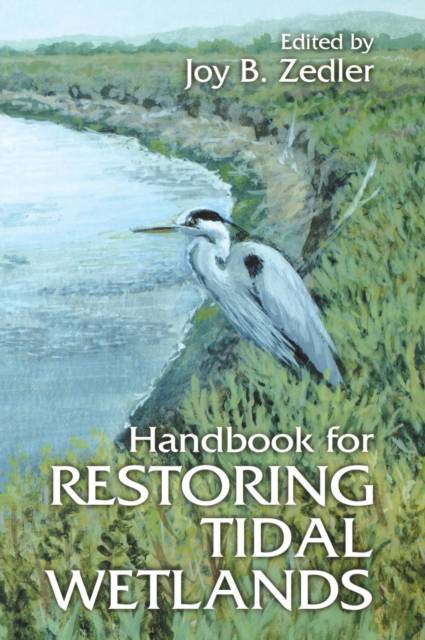
Wil je zeker zijn dat je cadeautjes op tijd onder de kerstboom liggen? Onze winkels ontvangen jou met open armen. Nu met extra openingsuren op zondag!
- Afhalen na 1 uur in een winkel met voorraad
- Gratis thuislevering in België vanaf € 30
- Ruim aanbod met 7 miljoen producten
Wil je zeker zijn dat je cadeautjes op tijd onder de kerstboom liggen? Onze winkels ontvangen jou met open armen. Nu met extra openingsuren op zondag!
- Afhalen na 1 uur in een winkel met voorraad
- Gratis thuislevering in België vanaf € 30
- Ruim aanbod met 7 miljoen producten
Zoeken
Handbook for Restoring Tidal Wetlands
€ 236,95
+ 473 punten
Omschrijving
Efforts to direct the recovery of damaged sites and landscape date back as far as the 1930s. If we fully understood the conditions and controlling variables at restoration sites, we would be better equipped to predict the outcomes of restoration efforts. If there were no constraints, we could merely plant the restoration site and walk away. However, the development of restoration theory has not yet lead to predictability. The Handbook for Restoring Tidal Wetlands fills an important gap in current restoration ecology literature. It provides a broad-based compilation of case studies and principles to guide the management of tidal restoration sites. Thoroughly illustrated with more than 170 figures and tables, the book covers a full range of topics including:
the conceptual planning for coastal wetlands restoration
strategies for the manipulation of hydrology and soils
the reestablishment of vegetation and assemblages of fishes and invertebrates
the process of assessing, monitoring, and sustaining restored wetlands Combining detailed examples from coastal research studies along the Pacific coast of southern California with information drawn from the literature on coastal restoration across the globe, the Handbook for Restoring Tidal Wetlands is a must-have guide if you are involved in coastal mitigation and restoration projects.
Specificaties
Betrokkenen
- Uitgeverij:
Inhoud
- Aantal bladzijden:
- 460
- Taal:
- Engels
- Reeks:
Eigenschappen
- Productcode (EAN):
- 9780849390630
- Verschijningsdatum:
- 30/08/2000
- Uitvoering:
- Hardcover
- Formaat:
- Genaaid
- Afmetingen:
- 178 mm x 265 mm
- Gewicht:
- 1002 g

Alleen bij Standaard Boekhandel
+ 473 punten op je klantenkaart van Standaard Boekhandel
Beoordelingen
We publiceren alleen reviews die voldoen aan de voorwaarden voor reviews. Bekijk onze voorwaarden voor reviews.










